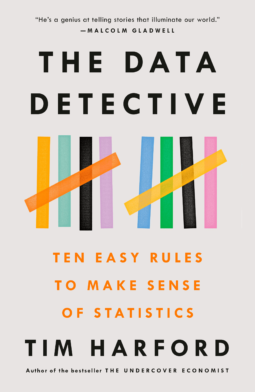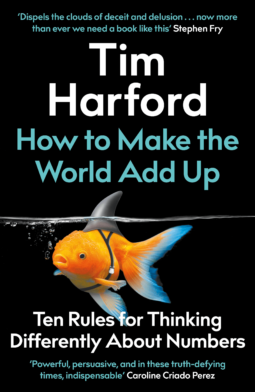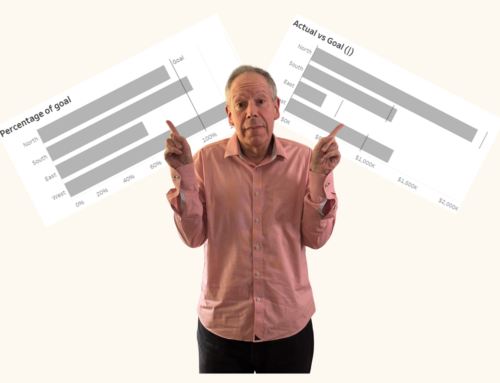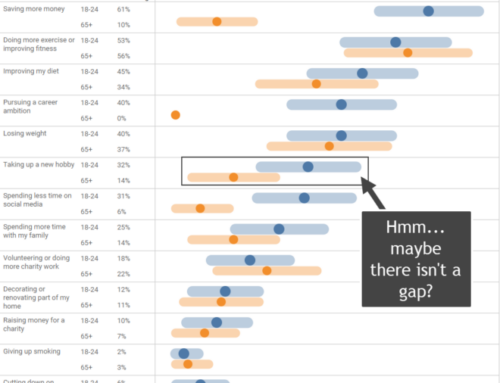The Data Detective
Ten Easy Rules to Make Sense of Statistics
by Tim Harford
Readers of my blog and newsletter know that I am a big fan of the books Factfulness and Mistakes Were Made (But Not by Me).
I want to add Tim Harford’s The Data Detective to this “how to make sense of the world” canon.
In Factfulness, Hans Rosling challenges readers’ misconceptions about the world and uses facts, visualizations, and charm to prove to you that the world is a much better place than it was 50 years ago. It’s hard to read it and not be hopeful, even in the midst of a pandemic.
In Mistakes were Made, Carol Tavris and Elliot Aronson explain why we create fictions and false narratives—and even false memories (just read the vignette about Gore Vidal and Tom Brokaw)—to support bad behavior and bad decisions. It did a lot to help me understand why I would see friends and colleagues— and especially politicians—double and triple-down on ridiculous ideas. It also helped me see a lot of shortcomings in my own behavior.
But the book left me frustrated. Yes, I now have a better understanding of why people behave foolishly and cling to crazy ideas, but it doesn’t suggest much on how to fix the problems.
This is where Tim Harford’s new book comes in.
In The Data Detective (which goes by the title How to Make the World Add Up outside of the US and Canada) Harford shows how preconceptions and biases lead us astray, clouding our ability to make rational decisions. But Harford doesn’t just show where and how this happens; he also suggests what we can do to combat it.
I was particularly engrossed with the chapter on why we should not take statistical bedrock for granted. Harford argues that it is essential that “boring” institutions, like the Congressional Budget Office in the US, be adequately funded and completely impartial. Disaster awaits the nation that does not maintain trustworthy and open statistics, and Harford recounts some statisticians whose livelihoods—and lives—were imperiled because they dared publish the truth.
The book is funny, infuriating, and important.
As for what trait allows us to inoculate ourselves against irrational behavior and toxic polarization, I hope you will be curious enough to read the book.








